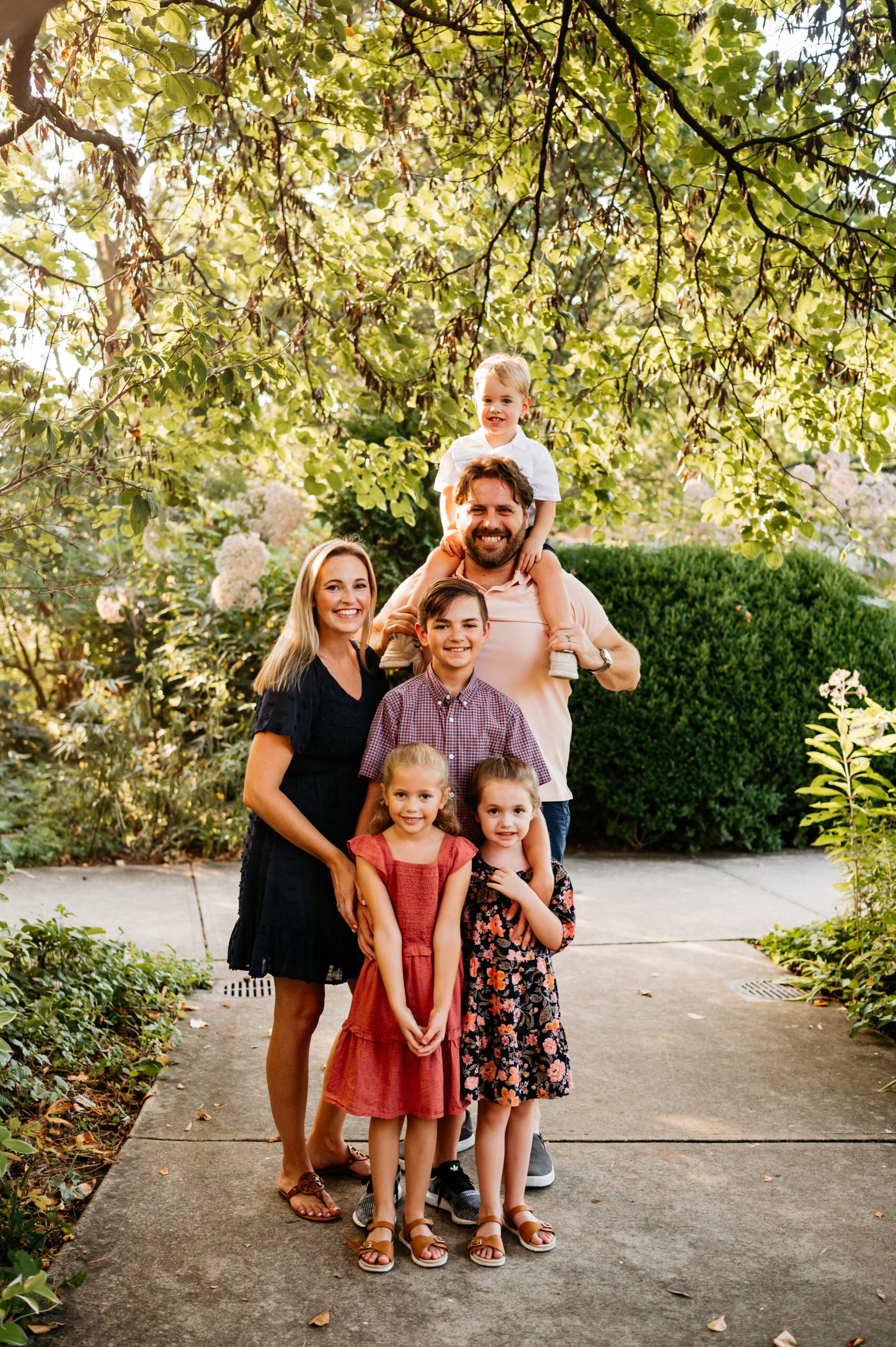Breathe. Breathe again. Now close your eyes and imagine the thing that makes you the happiest. Really dive into it. Imagine every detail. What does it look like, what does it smells like, what does it sounds like? Take yourself to your happy place.
What did you imagine?
Was it time when you were alone in nature? The birds singing, the smell of spring flowers, the sounds of a creek nearby, the cool air on your cheeks, and the feeling of peace washing over you.
Was it when you are at the baseball game with your friends? The crowd is roaring, your friends are laughing, a stadium hotdog warm in your hand, and the feelings of being alive pulsing through you.
Was it time with your family? Pushing your little ones on the swings, listening to their giggles, watching the excitement of the world through their eyes, and the feeling of overflowing love.
Was it early in the morning when you start your day with yourself and your intention? The soft light of the morning sun peaking up over the horizon, the smell of hot coffee brewing, the words that flow through you in your journal, and the feeling of content and connectedness to yourself.
Happiness is a much sought after feeling for people. People for decades or maybe for as long as humans have been here have been on a quest to achieve happiness.
There is research, studies, data, and courses that have long churned out information on the happiness of individuals. We have been given laid out plans on how to achieve and maintain happiness, but still so many people find themselves unhappy.
Maybe if I just work harder and get a raise, then I will be happy.
Maybe if I just get this award, I will be happy.
Maybe if I just get to this style of living, I will be happy.
But happiness, happiness is in the connection.
Happiness is in the connection we have with ourselves, and the connection with others.
Happiness comes from within.
Happiness comes from the company you keep.
Connection is one of our fundamental basic human needs and it is no wonder it plays such an important role on many different aspects of our well-being and our emotions.
So, if connection is so important for us to be happy, how do we get better at connections?
Connecting with ourselves is the birthplace of happiness. It is just as important to connect with yourself as it is to connect with other people, and yet so many of us put ourselves on the back burner to tend to other’s needs and expectations.
According to Psychology Today, “Regularly indulging in small pleasures, getting absorbed in challenging activities, setting and meeting goals, maintaining close social ties, and finding purpose beyond oneself all increase life satisfaction. It isn’t happiness per se that promotes well-being, it’s the actual pursuit that’s key.”
Some ways people can connect with themselves and begin building that better connection is to reflect on your feelings. Checking in on our feelings, our wants, and our needs is so important in the relationship we have with ourselves. This can be achieved through an intentional morning mindfulness commitment you make to yourself, an activity that gets your body moving, journaling, or other mindfulness activities.
Setting daily commitments to yourself, to honor your needs, and to examine your thoughts and feelings is not only positive for one’s mental well-being but for their quest for happiness. According to betterhelp.com, when one begins prioritizing themselves, they become happier which leads to more confidence, recognizing self-worth, challenging yourself, desire for change, less dependency, becoming more positive, ignoring criticism, accepting yourself, learning to let go, and seeking help. It is also noted that taking time for yourself and prioritizing your needs is not selfish, it is essential.
Likewise, we are the company we keep. If you are consuming good, it is easier to produce good.
Surrounding yourself with people that you aspire to be like, who live happy lives, and who cheer you on in your own journey is an important part of the human connectedness.
In a study cited by greatergood.berkeley.edu the data showed that, “What seems true across cultures is that social connections are key to well-being. For example, very happy people are highly social and tend to have strong relationships; kids with a richer network of connections grow up to be happier adults; and socializing is one of the most positive everyday activities. But this is one of the few studies to compare social and individual paths to happiness—and find that connecting with others might be inherently more rewarding.”
- Reasons why connection with others leads to happiness:
We experience feelings collectively. When we are together, we share joy, sadness, happiness, etc. Being around others who are happy and who bring out our happiness is beneficial. - It feels good to talk with others who understand you and support you. Even when sharing painful or unpleasant things with people who bring you happiness a level of comfort and happiness can be achieved in the moments of understanding.
- It feels good to do nice things and support others and likewise it feels good when you receive something nice or receive support from someone else.
- Leaning into our supports and having strong bonds with others are beneficial for happiness, mental well-being, and physical health. This supports the idea that quality relationships are of the utmost importance over quantity.
A study out of Harvard by Dr. Robert Waldinger found that, “social connections are ‘really good’ for you, when it comes to relationships pick quality over quantity, and good relationships actually protect your brain.” “Our study has shown that the people who fared the best were the people who leaned into relationships, with family, with friends, with community,” Waldinger said.
Happiness is contagious. When we are happy others are drawn to us. When we are drawn to other’s happiness it ripples which further supports the importance of establishing and maintaining our own happiness.
Happiness comes from within our connection with ourselves and within our social connections. Make them good ones!




